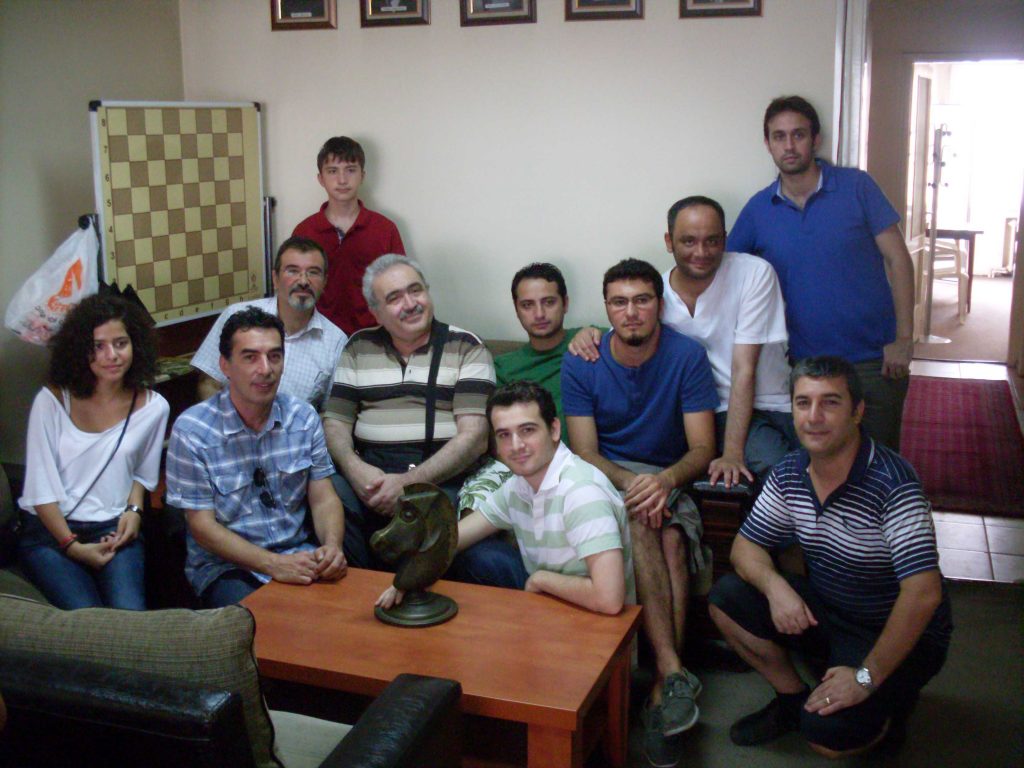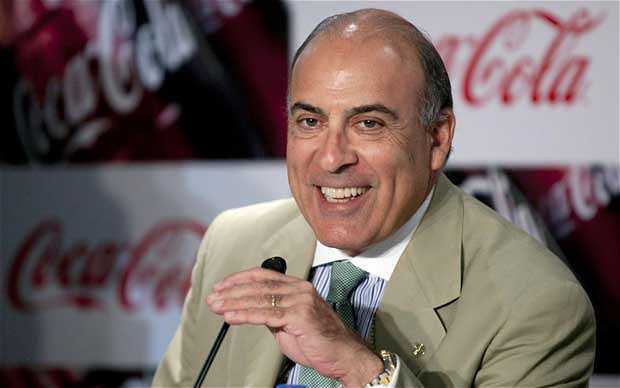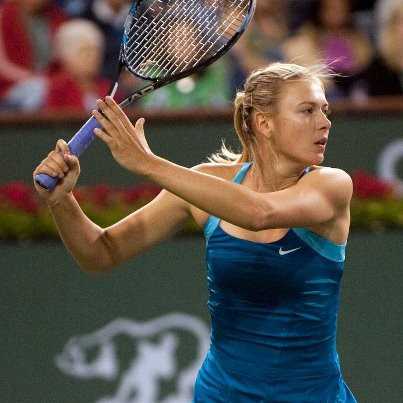Markets have been segmented and re-segmented, layer upon layer of different offers to different consumer groups, from New York to Chongqing, Bristol to Durban, Rio de Janeiro to Hyderabad. Coca-Cola is available in more than 200 countries throughout the world. The United Nations has 192 members.
Turn up in almost any corner of the world and rest assured you will not be very far from a guy with a trolley selling Coke. Virgin tried, and failed, to break into the cola market in the 1990s, blown out of the water by Coke which launched aggressive advertising campaigns and brand pushes against the young upstart.
Sir Richard Branson said the lesson he learnt was: “I’ll never again make the mistake of thinking that all large, dominant companies are sleepy.”
As arch-rival PepsiCo struggles to retain market share and Reutersdescribes its share price as “languishing”, Coca-Cola seemingly goes from strength to strength.
Last month, it revealed higher-than-expected second-quarter profits as strong emerging-market sales offset European decline. If you are not expanding, Kent says, you don’t have much of a business. He calls it “cracking the calculus for growth”.
“We have made sure that we have not wasted this crisis,” says Kent, who has been Coke’s chairman and chief executive since April 2009.
“Back in 2009 we developed a zero-waste programme – cut out all duplications, cut out all unnecessary expenses and re-allocate those funds to continue to invest in our brands through the crisis.
“Not save our way to prosperity – which you can’t – but invest our way to prosperity. We have increased our investments counter-intuitively at a time when normal logic would say cut. That has worked for us.
“This is a crisis unlike some in the past. It is not going to go away quickly, unemployment is not going to come down quickly, volatility and uncertainty in the macro-sense is here to stay for a while, I think at least for the next three years. One will not be able to say we are out of the crisis – it may even take longer.”
Kent is in the UK for the Olympics, with Coca-Cola taking over the Langham Hotel in central London for the duration of the Games. The company has been sponsoring the Olympics since 1928 and is the longest continuous commercial partner of the Games. It also sponsors the Olympic Torch, the Paralympics and the Special Olympics, of which is was a founding partner.
Kent doesn’t really do negative, he is American after all. But a sense of irritation does infuse his words as he tackles head-on the main criticisms of the Olympic sponsors – makers of sugary drinks shouldn’t have such a high profile at the world’s biggest sporting event and corporate control means that the Olympic spirit is lost under a welter of lawyers’ letters on whether a baker can make a cake with the Olympic rings on it or someone can bring a can of Pepsi into the Olympic Park.
Kent says the criticisms miss the point. If it wasn’t for the major sponsors putting tens of millions of pounds into the Olympics every year (Coke refuses to say how much) the Games would not exist in their present form. He also points out that Coke has moved a long way from the days when it made one drink called Coke and sold it around the world.
“Take a country like Britain,” Kent says. “Twenty years ago, everything sold under the Coca-Cola trade mark would be with full calories. Today, 20 years later, 40pc sold under the Coca-Cola trade mark are with no calories.
“I would say [to the critics] ‘show me another category of branded food or branded fast-moving consumer goods that have been able to innovate to the level where 40pc and going up are calorie free’.”
Kent argues that Coke has a series of major health campaigns including Street Games which involves 100,000 young people in Britain. People have a choice about what they drink and even a choice about how much they exercise.
“You have to raise awareness,” Kent says simply. “There is a need for energy balance, so people spend more energy, spend more calories. One of the biggest issues in society is that society moves less.”
On sponsorship, Coke argues that the company must have some protection of its intellectual property. It supports smaller businesses in other ways, often through the supply chain.
Its main adverts during the past week have focused on employment in the UK, saying that 97.5pc of Coke products sold in Britain are made in the country in factories stretching from Sidcup in Kent to East Kilbride in Scotland.
Coke employs 4,700 people in the UK, with a multiplier effect adding another 40,000 to that in associated supplier roles.
“I think there is a fine balance,” Kent says on the protection of rights. “But at the same time, it is wrong to say you should provide total freedom and not have any IP control and not have any protection of our intellectual rights. There is a fine line between protecting the small guys and giving them opportunities and protecting intellectual property rights and brands.
“In today’s world, many countries may not be able to put teams together [if there wasn’t the level of sponsorship presently available].
“A big portion of all the funds generated through partners like Coca-Cola and others are channelled through the International Olympic Committee back to the countries, which helps the Olympic movement and national Olympic committees.
“You can’t just say, ‘I’ll take all the benefit and I’m always going to be critical’. There has to be a balanced approach.”
Francois Hollande, the French president, poked his baguette into the debate when he said that the hundreds of seats left empty at various venues were because the London organisers had given away too many tickets to sponsors, a mistake he said the French would never make. “The problem is that there are simply too many corporate seats,” he argued.
Kent, speaking before Hollande’s interjection, would beg to differ. “We have a very, very high usage of tickets allocated to us so I’m not sure if there are empty seats where that is emanating from. Is it price, is it the local spectators?”.
Most reports have said the empty seats have appeared because national Olympic federations have not used up their allocations.
And far from giving all its seats to men in suits (Kent points out he hasn’t worn a tie all week), Coke insists that much of the allocation has gone to customers, “future flames” – Cokes partnership with young people at a community level – and partners such as suppliers.
Kent admits it is a changing world and that for consumer-focused companies there has to be a visible commitment to issues such as sustainability that motivate consumers and particularly the young.
Speaking at a conference earlier this year, Joe Tripodi, Coke’s executive vice president and head of global marketing, argued that the company and its investors have to become used to talking about a different kind of EPS – not earnings per share, but a partnership bringing together the economics of the business, the partnerships in the supply chain and the social value of the business.
“If you’re not doing all three, it’s no longer optimal, it’s no longer acceptable, even, to just build value for yourself and not build value for broader society,” Tripodi said.
Critics may dismiss such ideas as so many warm words, but Kent argues that in today’s global and inter-connected worlds, companies that do not play by the new rule book will soon be found out. He talks about “expressions of support” rather than simple sales.
“Because of social media and the strength of social media, it is no longer important to just create positive news and tell people that,” Kent says.
“People like to talk about something once they believe in it. That is why sustainability is so important. Consumers no longer vote for a product or buy a product because it tastes good. That is not enough any more. They want to essentially believe in the character of the company. They want to associate themselves with the character of the company. That is why sustainability is no longer a corporate social responsibility report.
“Our Facebook page, which is the largest Facebook page in the world for any brand, is not managed by us, it is managed by two people who created it.
“You have to have a lot of courage to let that happen as not everything that is said on that page is positive. But it would never have been the biggest Facebook page in the world if we managed it. We know that.”
Kent is aware that after the financial crash of 2007 and 2008, public suspicion of business and even the functioning of capitalism itself has raised a number of difficult issues for corporates.
In the UK, if not in America, the very concept of profit and levels of remuneration are regularly questioned. Frank Luntz, the Republican polling expert, has spoken of an increasing suspicion of “elites”, whether in politics or business.
“I think there has never been a time in the world where people on the street – it doesn’t matter whether you are in San Francisco or New York or London or Lyon – have had this low level of trust in institutions, including business, government, civil society organisations, NGOs, education, health. The level of trust is really bad. That is why the ‘golden triangle’ is so important,” says Kent.
“The future world of successful governments, successful businesses and successful NGOs and civil society organisations lies in their ability to be able to increase effective collaboration between government, business and civil society.
“Each of us have a role to play here. Societal problems that face us, take obesity, are not going to be solved only by government, not going to be solved only by businesses, only by NGOs. It is going to take a major collaborative effort to increase awareness.”
Coke has its own “Big Hairy Audacious Goal”, as defined by Tripodi – to double the size of its business in a decade. The company’s 2020 Vision mapped out 2pc to 4pc growth in volume of products sold, 6pc to 8pc growth in operating income and “high single-digit” earnings growth.
Surely, in a world struggling to find growth momentum, those are pretty punchy figures?
“[This is the] fastest-growing FMCG [fast moving consumer goods] sector in the world,” Kent says.
“Non-alcoholic ready-to-drink beverages are growing at a clip of 4pc to 5pc. We are in a growth industry. No matter how bad the macro-economics are, in the world today versus 10 years from now, there is going to be another 800m or so people coming in to the middle class. Where are these people going to come from?
“Obviously from Africa, Latin America and Asia – the bulk of them. Then another 700m to 800m people are going to move from rural areas to urban areas and migration will continue.
“So, that’s almost a billion, urbanised middle class coming into the world that doesn’t exist today – that generates a tremendous demand. We feel we are the best poised to capture that growth.
“In the last three years, we’ve captured 40pc of the growth – much larger than our fair share. And we feel we can continue to do that. That’s what gives us confidence.”
He says that Coke is in “bolt-on” mode and is interested in targets similar to the recent $980m (£632m) acquisition of the Middle East drinks company Aujan.
Coke already has a majority stake in the British fruit-smoothie maker Innocent, and that could grow. “We have the evolving right that continues into the future that we would own more than now,” Kent says when asked if Coke wants to wholly own the company.
“Currently we own the majority and we manage it jointly with the founders. We have a great position and it is doing very well and nothing will change [for the company] if we own more than the current amount of the shares. We are in a good place that everyone is very happy with.”
There have also been reports that Coke is looking at a major sponsorship deal with Formula One, rumours that Kent does not deny or confirm.
“We have wonderful events that we are long time supporters of, such as the Olympics, Fifa World Cup and many other programmes like NASCAR and tennis in the United States,” he says.
“So, there have always been rumours [about F1] and they’ll stay rumours.”
Kent is American and a chief executive, so confidence is built into his DNA. He says this will be the greenest Games ever for Coke, with every bottle produced recycled and back on the streets within six weeks, the fastest ever turnaround.
He says the company will continue to pump its millions of dollars into the Games and is already looking ahead to Rio de Janeiro in 2016. On the corporate front, many believe that Coke will continue to stick it to PepsiCo.
“There is a tendency at times to get a lot of unfair criticism,” he says of the view held by some that “big business” must in some way always be bad.
“Sometimes we don’t get all the credit. But I do believe that we have an inherent belief that you should ‘do’ first before you talk. And eventually people will understand.”
The Telegraph
The Telegraph






 Mark LowenBBC News, Athens
Mark LowenBBC News, Athens